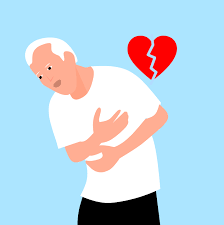The heart plays a fundamental role in maintaining the body’s functionality. It pumps oxygen-rich blood to tissues and organs, enabling proper systemic operation. Understanding the factors that affect heart health is key to preventing cardiovascular diseases and supporting cardiology care. Let’s explore the key signs of heart problems and when to seek the help of a cardiologist.
Signs of Heart Problems
Heart issues can manifest through various symptoms, ranging from mild discomfort to more pronounced physical signs. Being attentive to these indicators is key to identifying potential concerns early.
- Chest Pain or Discomfort
Chest pain is one of the most recognized signs of heart problems. This discomfort often appears as pressure, tightness, or a squeezing sensation in the chest area. These feelings may occur at rest or during physical activity.
- Shortness of Breath
Shortness of breath may arise suddenly or during physical exertion. This symptom typically signals a reduced ability of the heart to pump efficiently, which impacts oxygen delivery throughout the body.
- Rapid or Irregular Heartbeat
A fluttering sensation, a rapid increase in heart rate, or an irregular rhythm can indicate arrhythmic conditions or other cardiac concerns. This is particularly notable when these sensations occur at rest or without other provoking factors.
- Fatigue and Weakness
Unexpected fatigue and general weakness are indicators of potential heart strain. These symptoms may develop gradually and often accompany other warning signs.
- Sweating, Nausea, and Vomiting
Excessive sweating unrelated to physical activity, along with nausea or vomiting, can be linked to heart problems. These signs often occur in combination with other symptoms, like chest discomfort.
- Swelling and Pain
Heart-related pain is not always confined to the chest. It may radiate to the arms, shoulders, back, neck, or jaw, particularly during periods of exertion or stress. Swelling in the feet, ankles, or legs may point to the heart’s reduced efficiency in circulating blood, causing fluid retention in the body.
- Other Symptoms
Wheezing or coughing, dizziness or fainting, unexplained weight gain, and fluttering in the chest are other signs to watch for. These symptoms may indicate underlying cardiac concerns requiring attention.
When to Seek Help
Taking action at the right time is key to cardiology care and managing heart health effectively. Recognizing when symptoms warrant professional evaluation can prevent complications.
- Symptoms that Require Immediate Attention
Symptoms like severe chest pain, difficulty breathing, fainting, or pain that radiates to other areas should be treated as emergencies. If these occur, seek medical care immediately or call emergency services.
- Persistent or Recurrent Symptoms
Symptoms that persist or appear repeatedly, like fatigue, swelling, or an irregular heartbeat, should prompt a consultation with a cardiologist. While not always acute, addressing these signs early helps determine underlying issues.
- Preventive Measures
For anyone with risk factors such as high blood pressure, family history of heart disease, or high cholesterol, regular check-ups with a cardiologist are key. Routine tests and monitoring can help detect potential problems early.
Learn More About Cardiology Care
Maintaining heart health involves recognizing symptoms, knowing when to seek medical advice, and staying proactive with preventive care. Understanding the signs of heart issues and taking timely action can significantly reduce the risks associated with cardiac conditions. To further explore cardiology care or find tailored guidance, contact a trusted cardiologist.

